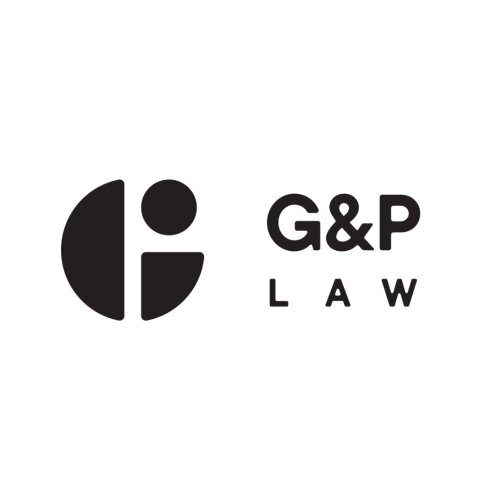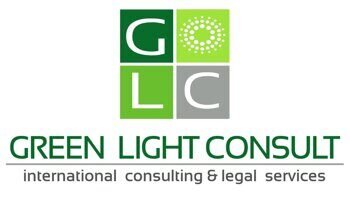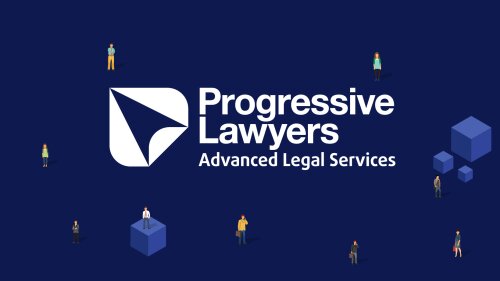Best Project Finance Lawyers in Sofia
Share your needs with us, get contacted by law firms.
Free. Takes 2 min.
List of the best lawyers in Sofia, Bulgaria
About Project Finance Law in Sofia, Bulgaria
Project finance is a specialized area of law and finance that involves structuring, negotiating, and securing capital for large-scale infrastructure or industrial projects based on the projected cash flows of the project itself. In Sofia, Bulgaria, project finance is commonly used for ventures such as energy plants, transportation infrastructure, public-private partnerships (PPPs), and real estate developments. The legal framework in Sofia supports both domestic and international project financing, requiring coordination between sponsors, lenders, and public authorities to allocate risks and ensure legal compliance.
Why You May Need a Lawyer
Engaging a lawyer experienced in project finance can be critical for several reasons. Common situations where legal help is essential include:
- Drafting and negotiating complex financing agreements and contracts
- Ensuring regulatory and permitting compliance with Bulgarian authorities
- Structuring deals to allocate risks and rewards appropriately among partners
- Managing public-private partnership processes and tenders
- Resolving disputes between project stakeholders
- Securing collateral, guarantees, and managing security interests
- Navigating cross-border financing regulations and foreign investment restrictions
- Advising on tax-efficient structuring for funds and payments
A qualified project finance lawyer in Sofia can help protect your interests and ensure your project’s legal structure is sound from the outset.
Local Laws Overview
Project finance in Sofia, and Bulgaria as a whole, is governed by a variety of local laws and regulations. Key aspects include:
- Commercial Act: Governs corporate structures, joint ventures, and business operations crucial for project companies and financing arrangements.
- Obligations and Contracts Act: Provides the legal framework for contracts, which are the backbone of project finance deals.
- Banking Act and Financial Supervision Regulations: Regulate the activities of banks, financial institutions, and foreign lenders involved in financing projects.
- PPP and Concession Laws: Outline requirements and procedures for public-private partnerships and obtaining concessions for public projects.
- Securities and Collateral Law: Defines the requirements for registering and enforcing pledges, mortgages, and other securities in favor of lenders.
- Environmental and Zoning Regulations: Set forth compliance obligations for projects with environmental, land use, or urban planning impacts.
- Tax Laws: Affect the structuring of project companies and financing arrangements, including VAT, income tax, and withholding tax considerations.
Understanding these laws is essential to structuring, financing, and managing projects efficiently and legally.
Frequently Asked Questions
What is project finance and how does it differ from traditional corporate finance?
Project finance involves securing funding for a specific project where repayment relies mainly on the project's cash flows, not the general assets or creditworthiness of the sponsors. In contrast, traditional corporate finance is based on the overall financial health of a company.
Can foreign investors participate in project finance deals in Sofia?
Yes, Bulgaria welcomes foreign investors in project finance. However, certain sectors may have regulatory requirements, and cross-border transactions may require compliance with both Bulgarian and international laws.
What are public-private partnerships (PPPs) and are they common in Sofia?
PPPs are collaborations between public authorities and private entities to deliver public services or infrastructure. They are increasingly common in Sofia for projects like roads, utilities, and public buildings.
What types of collateral are typically used in project finance in Bulgaria?
Common forms of collateral include mortgages over real estate, pledges over movable assets and receivables, bank guarantees, and assignment of project contracts or accounts.
Are there special requirements for environmental compliance in project finance?
Yes, projects in Sofia must comply with Bulgarian and EU environmental laws, requiring environmental impact assessments, permits, and ongoing compliance monitoring for certain sectors.
How long does it take to set up a project finance structure in Sofia?
The timeline varies depending on the project's complexity, permits required, and negotiation duration. Simple projects may be structured in a few months, while complex PPPs can take a year or more.
Do lenders in Bulgaria have reliable legal protections?
Yes, Bulgarian law provides established mechanisms for registering and enforcing security interests. However, timely enforcement can depend on the specifics of the contract and the type of collateral.
Are there incentives or subsidies for project finance projects in Bulgaria?
Certain sectors, such as renewable energy or regional development, may benefit from state or EU-funded incentives, grants, or preferential tax regimes to support qualified projects.
What are the most common risks in project finance deals in Sofia?
Risks include regulatory changes, permitting delays, construction overruns, payment defaults, and exchange rate fluctuations for cross-border deals. Proper contract structuring and risk allocation are essential.
Do I need a local partner to engage in project finance in Sofia?
A local partner is not always required, but partnering with local entities can help navigate regulatory processes, access state or municipal procurement opportunities, and facilitate community outreach.
Additional Resources
For further information or support with project finance matters in Sofia, these resources may be useful:
- Bulgarian National Bank - regulates financial and banking activity
- Ministry of Finance of the Republic of Bulgaria - policy and regulatory guidance
- Bulgarian Energy Holding - support for energy-related projects
- Public Procurement Agency - information on PPPs and public tenders
- Bulgarian Chamber of Commerce and Industry - business networking and information
- Professional legal associations and local bar associations - directories of qualified lawyers
Next Steps
If you are considering a project finance transaction in Sofia, Bulgaria, it is crucial to:
- Identify the specific needs and objectives of your project.
- Consult a qualified project finance lawyer with local expertise.
- Gather all necessary documentation, including business plans, feasibility studies, and preliminary agreements.
- Engage potential lenders and partners to discuss financing options and risk allocation.
- Work closely with your legal advisor to ensure full compliance with Bulgarian laws and regulations.
A legal professional will guide you through each step of the process, maximizing your project's success and minimizing legal risks.
Lawzana helps you find the best lawyers and law firms in Sofia through a curated and pre-screened list of qualified legal professionals. Our platform offers rankings and detailed profiles of attorneys and law firms, allowing you to compare based on practice areas, including Project Finance, experience, and client feedback.
Each profile includes a description of the firm's areas of practice, client reviews, team members and partners, year of establishment, spoken languages, office locations, contact information, social media presence, and any published articles or resources. Most firms on our platform speak English and are experienced in both local and international legal matters.
Get a quote from top-rated law firms in Sofia, Bulgaria — quickly, securely, and without unnecessary hassle.
Disclaimer:
The information provided on this page is for general informational purposes only and does not constitute legal advice. While we strive to ensure the accuracy and relevance of the content, legal information may change over time, and interpretations of the law can vary. You should always consult with a qualified legal professional for advice specific to your situation.
We disclaim all liability for actions taken or not taken based on the content of this page. If you believe any information is incorrect or outdated, please contact us, and we will review and update it where appropriate.
















